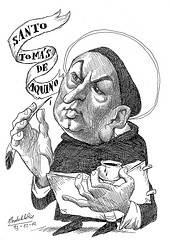Just because something happens in Church history, gains some sort of consensus of the so-called faithful, this does not (or should not) lead to the notion that God caused  whatever happened to happen; whether it be related to some form and development of church government, some doctrinal development, so on and so forth. As Protestant Christians, we OUGHT to repudiate these types of natural theologies; the types where it is asserted a priori that the way the consensus decided just is the will of God for the Church’s edification. It may or may not be, that’s why we are to test all things by way of Scripture and its reality in Jesus Christ and the triune God; just as the Bereans did. This is one reason, among others, why I reject natural theology simpliciter. The Bible’s ontology, its reality is not contingent on a natural basis, but a supranatural one as that is given for us in God’s free choice and election to be for us, for the world, and not against us, in Jesus Christ. As Christians we have this type of disruptive grace constantly in-breaking upon us (extra nos, ‘from outside of us’). This is the condition; this is the ground from whence the Christian can canonically tests all things. This is a lively, an eschatological activity that leads us to say Yes or No, from God’s Yes and Amen for us, who is the Christ. It is indeed, a churchly activity (communio sanctorum), but the consensus isn’t ultimately grounded in the Church, but in the Monarxia (God-head) of the living God. Indeed, His triune life is the esse, the being, the ground, the foundation of the Church’s reality as that is freely given in the vicarious humanity of Jesus Christ. And so, as Christians we have come to have the capacity to think from within the center of God’s life, as we are participatio Christi (participants with Christ). We move and breathe, by the Holy Spirit, with the breath of Jesus Christ. It is within this movement that we come to have the lights that illumine the footsteps of our path. And it is within this path that we have become enlivened to the point to be able to look at this or that dogma and say Yes or No; indeed, as the Church, and yet individual members of it (cf. I Cor 12.27).
whatever happened to happen; whether it be related to some form and development of church government, some doctrinal development, so on and so forth. As Protestant Christians, we OUGHT to repudiate these types of natural theologies; the types where it is asserted a priori that the way the consensus decided just is the will of God for the Church’s edification. It may or may not be, that’s why we are to test all things by way of Scripture and its reality in Jesus Christ and the triune God; just as the Bereans did. This is one reason, among others, why I reject natural theology simpliciter. The Bible’s ontology, its reality is not contingent on a natural basis, but a supranatural one as that is given for us in God’s free choice and election to be for us, for the world, and not against us, in Jesus Christ. As Christians we have this type of disruptive grace constantly in-breaking upon us (extra nos, ‘from outside of us’). This is the condition; this is the ground from whence the Christian can canonically tests all things. This is a lively, an eschatological activity that leads us to say Yes or No, from God’s Yes and Amen for us, who is the Christ. It is indeed, a churchly activity (communio sanctorum), but the consensus isn’t ultimately grounded in the Church, but in the Monarxia (God-head) of the living God. Indeed, His triune life is the esse, the being, the ground, the foundation of the Church’s reality as that is freely given in the vicarious humanity of Jesus Christ. And so, as Christians we have come to have the capacity to think from within the center of God’s life, as we are participatio Christi (participants with Christ). We move and breathe, by the Holy Spirit, with the breath of Jesus Christ. It is within this movement that we come to have the lights that illumine the footsteps of our path. And it is within this path that we have become enlivened to the point to be able to look at this or that dogma and say Yes or No; indeed, as the Church, and yet individual members of it (cf. I Cor 12.27).
